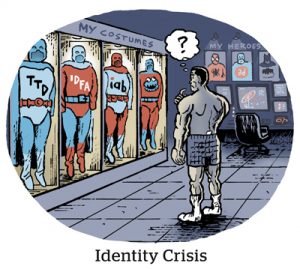“You’ll Never Guess Which Two Content Recommendation Engines Have Decided NOT To Merge!”
No need to click, we’ll tell you. The Taboola/Outbrain merger will no longer happen.
There are two primary reasons why the deal will not move forward, according to a source directly familiar with the matter but unable to speak publicly due to legal reasons.
First, Taboola changed its commitment to publishers in June. It stopped offering publisher guarantees and switched to a revenue share model. This caused Taboola to breach several publisher agreements, according to the source, and led the company to lose high-profile customers, including Fox News and News Corp in the United Kingdom.
The fallout contributed to Taboola’s inability to line up new financing, which had been promised as part of the original merger agreement.
Back in rosier days, it made sense for the two biggest third-party content recommendation companies to work together and corner the clickbait market rather than fighting for relationships with the same publishers.
In April of this year, the Justice Department started interviewing clients and rivals of both Taboola and Outbrain as part of a review of the deal.
The top question the DOJ was pondering is whether a combined Taboola/Outbrain would harm competition or create a new competitor for Google and Facebook. Some digital ad executives were worried that merging Taboola and Outbrain would reduce publisher payouts because the two would no longer have to compete with each other.
In late July, after poking around – and a delay in the review process due to COVID-19 – antitrust officials at the DOJ said they wouldn’t move to block the merger.
Guess that’s moot now.
The potential deal was first reported by Israeli media way back in May 2017, when the companies were said to be in advanced talks and close to finalizing their marriage. And then it was crickets until October 2019, when they more formally announced what would become a very long, and now broken, engagement.
But hey, it’s 2020 and all bets are off.
Taboola did not immediately respond to a request for comment, and Outbrain declined to share an official statement.
Updated 10/22/20: According to Taboola, the Fox News and News Corp relationships ended amicably and for reasons unrelated to the rev share model changes.

















